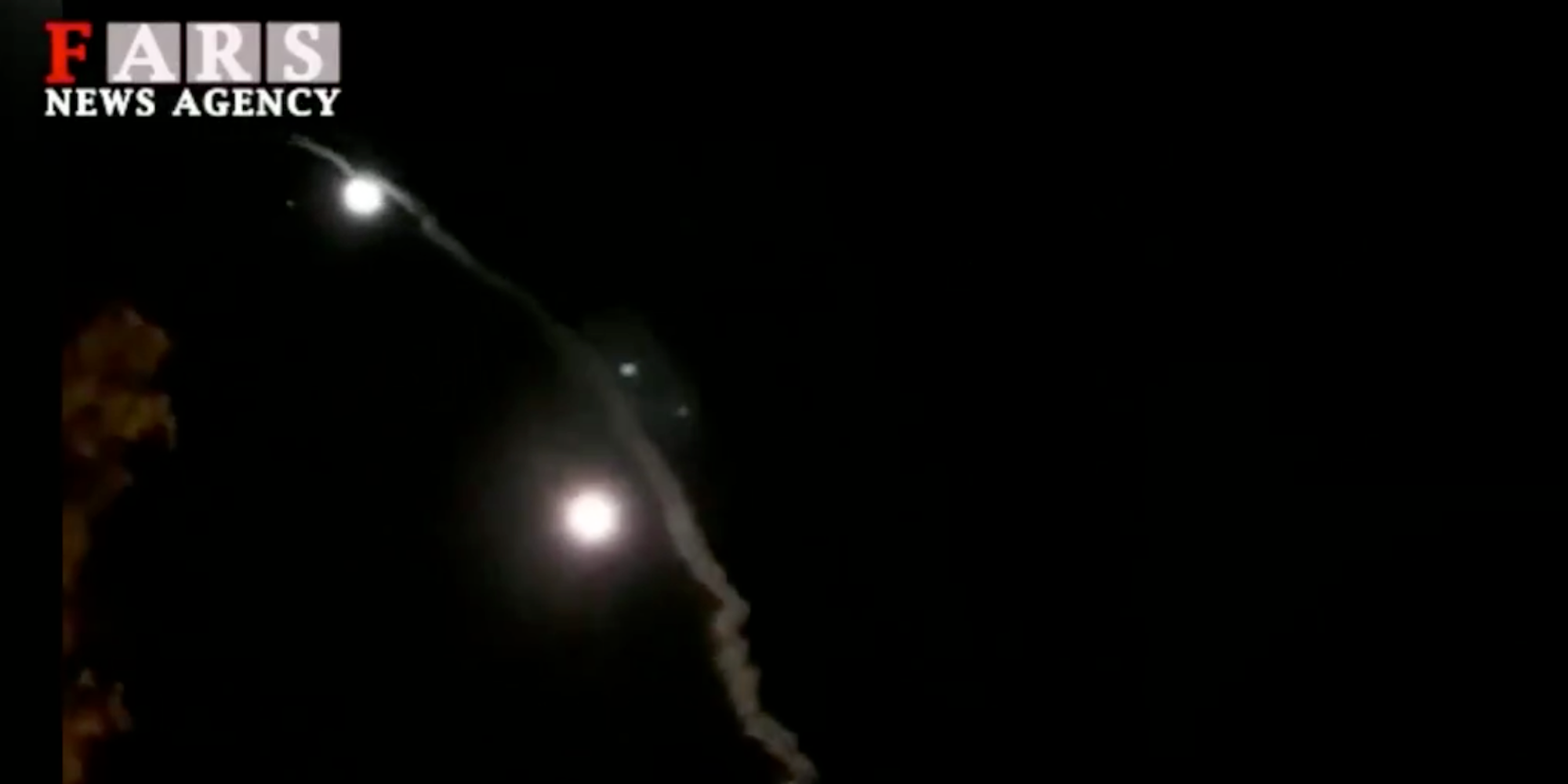- On Tuesday night, Iran launched airstrikes against two military bases in Iraq where US troops were stationed in response to the US assassination of its top military commander, Qassem Soleimani.
- Iranian leaders claim they will not escalate the conflict if the US does not retaliate against the missile attack.
- On Twitter, President Donald Trump also struck a different tone to the bellicose rhetoric of recent messages: “All is well! Missiles launched from Iran at two military bases located in Iraq. Assessment of casualties & damages taking place now. So far, so good!”
- But experts warn that Iran could decide to take further revenge through its network of proxy militias or through other covert action.
- Trump’s long-term strategy is unclear – so we can’t tell if he will be willing to close the book on this chapter.
- Visit Business Insider’s homepage for more stories.
Iran’s leaders pledged to avenge the death of its top military commander, Qassem Soleimani, in a US drone strike – and on Tuesday night they acted.
Iran launched more than a dozen missiles, striking two bases just west of the Iraqi capital of Baghdad, where US troops are stationed.
Mirroring a triumphalist message sent by President Donald Trump after the assassination of Soleimani, in which he tweeted out a picture of the US flag, top Iranian advisers also tweeted out a picture of Iran’s flag.
According to initial statements from Iran’s leadership, the country’s leaders believe that the strikes are a proportionate response to the assassination. They also claim that if the US does not respond, they will not retaliate further.
Iran's foreign minister, Mohammad Javad Zarif, tweeted early Wednesday morning: "Iran took & concluded proportionate measures in self-defense under Article 51 of UN Charter targeting base from which cowardly armed attack against our citizens & senior officials were launched."
"We do not seek escalation or war, but will defend ourselves against any aggression," he added.
The Islamic Revolutionary Guard Corps also warned the US not to retaliate, or else "it will face a more painful and crushing response," according to a statement carried by the state-run Fars news agency.
Experts also say that Iran appears to have exacted its revenge for Soleimani's death by way of the Tuesday strikes, but warn it has cyber spies and proxy forces to order more attacks on the US and its allies in ways that it may deny.
Will Trump wind down hostilities - or do something to further provoke Iran?
Farnaz Fassihi, an Iran expert and reporter at The New York Times, also tweeted: "Sources in Iran say if US doesn't retaliate than Iran will also de-escalate. But if it does, then it's war."
Ilan Goldenberg, the Middle East Security Director at the Center for a New American Security, added: "Iran needed to respond publicly but it didn't want to trigger a war. A highly visible and symbolic strike that did not kill Americans fits that bill."
"It can argue to its people that it fought back against the US and also send a signal to us that they will retaliate."
Trump had reportedly considered making a televised address to the US after news of Iran's attack broke, but later decided against it.
In his first tweet after the missile strike, he struck a very different tone to the bellicosity of recent messages, hailing the fact that the strikes did not appear to have inflicted any US casualties.
All is well! Missiles launched from Iran at two military bases located in Iraq. Assessment of casualties & damages taking place now. So far, so good! We have the most powerful and well equipped military anywhere in the world, by far! I will be making a statement tomorrow morning.
— Donald J. Trump (@realDonaldTrump) January 8, 2020
Both sides have good reason to want to avoid open conflict.
Trump won the 2016 presidency on a pledge to end US embroilment in protracted and costly foreign conflicts, and is currently campaigning for re-election later this year.
Iran, analysts have pointed out, is a far more formidable and better armed adversary than the demoralized and badly-equipped Iraqi forces the US faced in its 2003 war.
Iran's leadership is reportedly deeply wary of conflict with the US, whose military might dwarfs its own and where US sanctions are already taking a deep toll on the economy.
'I doubt they are done'
But amid the optimism that the missile strike offered both parties a ramp away from the steady build to warfare, other experts have expressed caution.
Soleimani's hero-like stature in Iran could mean that a largely symbolic missile strike is unlikely to totally satisfy its appetite for revenge. Iran could choose to take further revenge through its array of proxies and sleeper cells embedded in countries throughout the Middle East and further.
To illustrate this point, Colin Clarke, an expert at Carnegie Mellon University's Institute for Politics and Strategy, pointed to terror attacks carried out on Israeli civilians by the Lebanese-based militia Hezbollah - an Iran proxy - in Buenos Aires, Argentina, in 1994, and in Bulgaria in 2012.
Goldenberg from the Center for a New American Security added: "You can also bet on the fact that there will be an effort to exact more pain on the US through something less attributable - a terrorist attack, assassination, cyber. But that could take weeks, months, or even years. I doubt they are done."
In a statement issued after the missile attacks, Iran's President Hassan Rouhani suggested that Iran's campaign to damage the US was far from over.
"You cut off Gen. Soleimani's hand and we will cut your legs off the region," said Rouhani after a cabinet meeting Wednesday, according to Fars.
- Read more:
- Video appears to show the moment Iran launched a barrage of missiles on US forces in Iraq
- Iran claims its missile strike against US troops was made in 'self-defense' after Trump's 'cowardly' attack
- Britain condemns Iran's 'reckless and dangerous' attacks after US bases are struck by Iranian missiles
- Defense stocks tear higher following Iran's missile strikes on bases housing US troops

